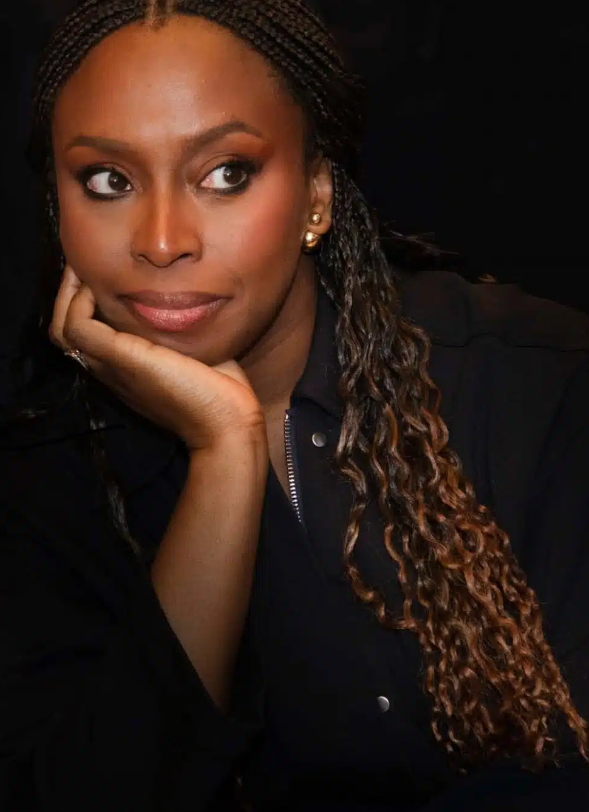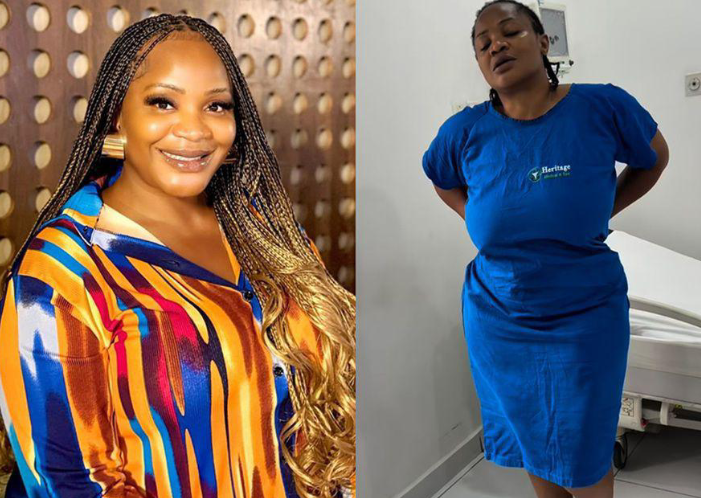
No Shame in Motherhood: Chimamanda Adichie Speaks Her Truth on Welcoming Twins via Surrogacy

In a moment of raw vulnerability and striking candor, celebrated Nigerian author Chimamanda Ngozi Adichie has opened up for the first time about becoming a mother to twin boys through surrogacy, sparking a fresh wave of conversation about motherhood, societal expectations, and the culture of shame surrounding fertility issues. The beloved novelist, revered for her boldness in confronting social taboos through literature and public discourse, laid her heart bare during an emotional sit-down interview with media personality Chude Jideonwo, sharing what has been an intensely personal yet widely scrutinized chapter of her life.
For a woman known for her unapologetic feminism and powerful storytelling, this revelation was no publicity stunt or headline grabber—it was an act of courage and responsibility. The backlash she received, she revealed, was sharp and deeply personal, a stinging reminder of just how politicized a woman’s reproductive choices can be, especially when she is in the public eye. “My boys are so precious to me,” Adichie said, her voice steady but laced with emotion. “And I hated that anything about them would become politicised. So, on the one hand, I thought, ‘I wish I hadn’t talked about it.’ But on the other hand, there is no way I am going to lie about the process of birthing them.”
The birth of her twins, a joyous occasion by any standard, became the center of intense scrutiny, not because they weren’t welcome, but because of how they came into the world. The method—surrogacy—is still a lightning rod for criticism in many societies, and Nigeria is no exception. By speaking out, Adichie is doing more than just defending her decision; she is opening the door for countless women silenced by shame, judgment, or cultural dogma. “I am hoping that if anything good comes out of this, it would be that more women are less ashamed of talking about reaching motherhood through non-traditional means,” she explained. “Because our society is so judgemental, and I don’t think that that is good for anybody.”
Known for writing complex female characters who wrestle with identity, trauma, and resilience, Adichie is now embodying that very struggle in real time. Her words have resonated with many who feel trapped in a society that sets unrealistic timelines and expectations for motherhood. She touched on a painful truth when she noted that some people might now use her age—47—as a benchmark to pressure other women. “I felt that there were many women who would then be pressured by people saying, ‘Look, Chimamanda is 47, and she had kids at that age; what about you?’” she noted. “And just in general, I think there is so much shame around issues of fertility that I just think it’s too much of a burden for women.”
Her message was crystal clear: stop shaming women for their bodies and the paths they take to motherhood. Fibroids, infertility, delayed childbearing—these are not moral failings but biological realities, yet many women endure silent suffering under the weight of cultural judgment. “Women are shamed when they have fibroids, women are shamed when they have issues getting pregnant, and I don’t believe in that sort of shame,” she asserted. Her words weren’t just a defense of her own choices, but a rallying cry for every woman who’s ever felt less-than because her journey didn’t align with tradition.
In a society where silence is often confused with dignity, Adichie’s decision to speak up is a radical act. It is a declaration that motherhood, in all its forms, is valid and worthy of celebration. It is also a powerful indictment of a culture that places the burden of fertility squarely on women, often ignoring the emotional, physical, and psychological toll that comes with that weight. By opening up about surrogacy, Adichie challenges the idea that motherhood must look a certain way to be meaningful.
Yet, even with the backlash and the heavy commentary, she has no regrets. “My daughter and my babies are the greatest gift I’ve been given. So — zero regrets,” she said, the conviction in her voice silencing any remaining doubt about the depth of her love and the intentionality behind her decisions. That simple statement is perhaps the most profound. In a world that loves to dissect, critique, and moralize women's choices, Adichie stands firm, unashamed, and deeply fulfilled.
The reaction to her revelation has been mixed, as expected. While many have praised her bravery and openness, others have taken to social media to question or condemn her decision. But for Chimamanda, the personal always intersects with the political, and silence is rarely an option. Her choice to discuss her motherhood journey publicly serves not only to humanize her but to create a space for other women to see their realities reflected and validated.
Her story also touches on a larger, often unspoken narrative about modern womanhood and the choices available to those who have the means and the will to take them. Surrogacy, still shrouded in stigma in many parts of Africa, is rarely discussed openly, particularly among public figures. Adichie’s willingness to break that silence sets a precedent that may just help normalize conversations around assisted reproductive technologies.
For someone who has spent her life crafting characters that speak truth to power, it’s no surprise that Adichie would also use her own life to challenge cultural scripts. Her story is not just about twins or surrogacy—it’s about liberation, about the right to define one’s own life, and about the power of truth in a world that often punishes honesty.
Chimamanda Ngozi Adichie has always been a beacon of strength and authenticity. In sharing her story, she reminds us once again that the most powerful narratives are the ones rooted in truth, however uncomfortable they may be. And as she embraces this new chapter of motherhood, her voice remains as vital as ever—not just as a writer, but as a woman who dared to claim joy on her own terms.


